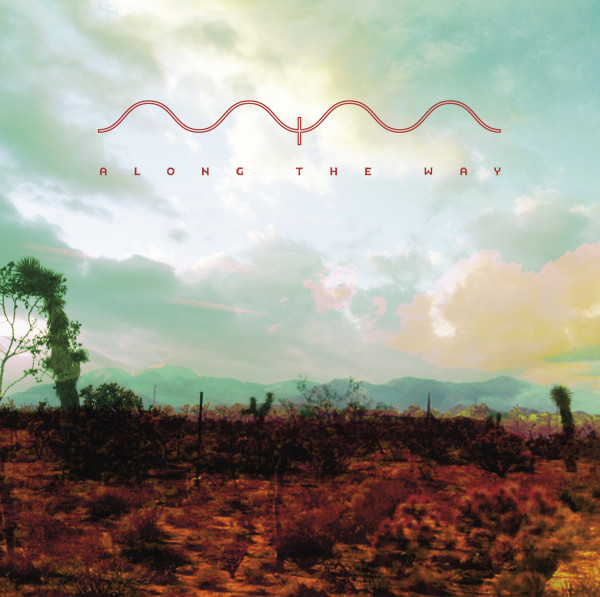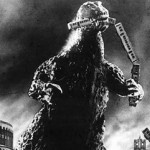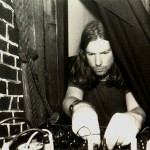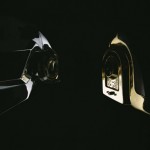Interview : Mark McGuire

Last year, clinical psychologist Meg Jay hosted a TED Talk titled, “30 is not the new 20.” Granted, TED Talks have drawn criticism for not doing much other than someone bragging about their successes in front of people, but Jay’s lecture is something worth paying attention to, especially if you’re a twentysomething. She discusses how the decade of an adult’s 20s, is truly a moment of exploration and self-discovery. She has written extensively on the subject and has provided advice online for those still trying to figure out their purpose in life. She calls this period, “adult development,” where adults learn more about themselves and eventually deciding their futures.
Former Emeralds member, Mark McGuire went through his own personal journey of self-discovery and self-awareness to find himself and find the answers he sought. The 27 year old musician still seeks the answers to his life and has discovered that it needs to be embraced in order to fully enjoy it. His new album, Along The Way, is a concept album, rooted in existentialist themes with a short story about a protagonist seeking the answers to life, all the while still maintaining rich harmonies and complex production techniques to create an album to an invisible film. McGuire recently spoke to Treble from his LA home, and discussed the challenges of making this record, a Star Wars version of his album, the messages contained within his work and what he looks forward to living in California.
Treble: What were some challenges that you faced while producing Along The Way?
Mark McGuire: I played all the instruments on the album, which for a lot of them was the first time I kind of committed to playing these instruments and stuff like that. I recorded the whole thing myself, I produced it, I mixed it. I didn’t master it. I still do not know how to master music but I basically did everything else. There were a lot of things that came up during the process of trying to compose that record with all the different instruments and kind of following the arc of story that went along with it. There was, like, a nine-month period of literally, just me writing and recording the songs and then after that, months of preparation of getting stuff together and finding a label for it even, that was a process. So there was a lot of stuff going on and you know, during that time I was going through a lot of changes in my life and a lot of personal things that I’m still dealing with. Everyday kind of reveals the new — I wouldn’t want to call them problems, but challenges that you have to reassess and try to take on. So it’s kind of hard to know where to start [laughs].
Treble: Along The Way feels like a record written for someone seeking out the answers to some pretty challenging questions. Is that something you were aiming for?
MM: Yeah, at the time when I was starting to work on the album and a couple of years before that since I worked on my last major record, I started getting back into reading psychology, philosophy and lots of different subjects that I used to be interested in when I was younger but I fell off with. So, in the past year I’ve really gotten back into trying to really understand the world in a new way because I realized that when you’re growing up you have your image of what you think the world is, what life’s processes are, what interactions are, and what is steering the world the way it’s going. Then, I think you reassess that when you’re going through adolescence and you realize, “Oh wait, well, some of this stuff is bullshit, some of this stuff is real and some of this stuff is actually this,” and then you start to try and think more for yourself. Then after high school, when you head off to college, you have a further re-evaluation, and I think I realized with myself it had been a few years since I had updated my grasp of what the world was. And a few years ago I just started try to understand things in a way to be like, “Alright, well, let’s just say I’m starting from right here, let’s take a look around and try to understand what’s actually happening.” And so with this record, it was me definitely channeling that energy, outlook and perspective and that search into the story, the music and into, literally, even what I was doing musically with the different instrumentation, the production techniques, and really trying to take things to another level. The metaphor, I think, extends into the music that way.

Treble: The story that accompanies the album feels like a necessary component, is it important for fans to read it and get a better understanding of the album?
MM: I wouldn’t say it’s required like you have to there and read this thing or If you don’t agree with it then you can’t be into the music or something like that. A lot of music that I make, with Emeralds and my solo stuff, it is instrumental and a lot of is improvised, it’s very abstract but there are definite ideas and definite points that I’m trying to make. With this one, I was trying to put those into actual concrete, literal ideas so that when you’re listening to it and thinking, “Oh man, I wonder if he’s talking about this or I wonder if, maybe, this is what it’s about” and actually go look into it a little deeper and find out what the song is about. It’s one of those things also where the story itself is not a complete version of what the record is even about. I’ve looked back at it since I wrote it and I’m not a writer, I certainly don’t consider myself a great writer or anything like that, so when I wrote this and finalized it I literally could’ve sat there for hours and hours, re-edited and try to rework it. I overthink things a lot sometimes, I’ll sit there staring at a word or stare at a sentence for 20 minutes being like, “Is that really what I mean?” or “Is someone going to read this and think something else?”
So, when I finalized the text and sent it in, at one point I just had to be like, “You know what? Just send it. This is what it is.” It’s the same with the music, you can go back and edit a song, listen to it again, find another thing you don’t like and want to go and change it here and try to perfect these things to a certain point. But after a certain point, it can be self-defeating. With the text it was like that, my point being, it’s not set in stone or anything like that. The ideas and everything they’re one version of the way the story could be told. I even tried to write it a bunch of different ways too. At first I was writing it like a pseudo-faux-sci-fi metaphysical adventure story, there’s a lot of different ways I was thinking of doing it. Even when I look back at it now, I’m like, “This could be said a different way, this could be said a different way” and I think that it’s cool because it also leaves it open to be changed down the line. Not like George Lucas style, Along The Way: Clone Wars or something like that, but I think it’s cool because those ideas have room to grow in the way Rudolf Steiner talks about when you shouldn’t give a child an idea, a concrete thing you’re telling a seven year old, “This is what it is.” So, then their whole life they’re made to understand there is this one thing that doesn’t change, doesn’t grow, there’s no real development or actual existence to it. It’s an idea that’s placed in your head when it doesn’t make any sense. Anyone that’s going to read the record, they’re going to have an idea of what they think it is at first, but it’s really not going to make its full point the first time you listen to it. With something like that, the listener should let it grow with them, think about it, but don’t try to label it and put it in a box or anything as soon as you read it [laughs].
Treble: Would you say that this album serves as a transitional piece for your own life? Is it based on a spiritual journey you took?
MM: Absolutely. I just turned 27. When I was recording the record I was 25 and Emeralds just split up. I was just at a point in my life where I really needed to figure out where I was going and what I was doing. A lot of stuff in the story is about this character trying to figure out where to go and where to find truth. It deals with the idea of selfhood and not living a life under the umbrella of some collective or some group. Really trying to go out and strive to live your life on a daily basis. To believe in what you truly believe in. At that time when I was making the record, these were the things I was still trying to figure out. So, the record was definitely me channeling all that into a document of that point in my life. If I were working on it now, it’d still be changing somewhat. But I still feel the story is still relevant how I feel about what I’m trying to do, where I’m trying to go keep on trying to surround myself with and things I’m trying to participate in. Just the general aura around everything that I’m doing, I’m trying to really figure out where that’s coming from, what that is, and where I’m trying to go with it. That’s something that’s just going to keep changing, I feel like, and keep growing.
Treble: Is there a particular message you want to convey?
MM: I don’t want to be the guy people are going to look to for some message. I do personally think that there are basically no messages. No one says anything in music anymore. I couldn’t even tell you what most music is about except this sensationalistic glorification of the materialist society that we live in. As cliché as that sounds even for me to say that right now, I can’t help but only hear things like that in music nowadays. With independent artists and these underground bands, I come from the experimental/noise underground where there’s a lot of powerful ideas and really powerful energy behind what the music is and what it’s saying. I feel like you go out into the world and the more you look at modern music, there’s not a lot of stuff that’s really saying very much. There’s exceptions, there’s people making really conceptual records, like James Ferraro’s Far Side Virtual record, which was hugely inspiring to me and I think that record really is funny, a lot of it is these pretty humorous tongue-in-cheek references and the way it sounds goes with it. It’s a great statement on what our consciousness is becoming. I don’t find many records like that anymore. For me, personally, I was at a point where I do want to say something, there’s a lot of things I want to say. But, I also understand that I live in the United States in the 21st century. People who speak their minds don’t always get treated the most fairly. The only message I want to send is to take your own message and to follow your heart, follow what you believe is truth, and don’t really listen to anyone except your own reason and logic. Shit like that; just be real [laughs].
Treble: Along The Way seems like a soundtrack to a film that doesn’t exist. Was it meant to be perceived that way?
MM: Absolutely [laughs]. I was working on a film, it was really fun to do that, and it was great to work to these images. I was like, “Man, I want to write a movie and I want to do the soundtrack and that would just be cool to do that.” So, I basically was composing to this invisible film that I was watching which is also an adaptation of the book version, which is loosely translated in the text that comes along with the record. I’ve been working on videos for most of the entire album. I’ve even talked with Dead Oceans briefly about wanting to do some kind of video release of the record. I’m really interested in working with film, with that medium. It just takes music and puts it on a completely different level. It’s always been like that, with Emeralds, we always used to make videos for our lives shows. Music and image should be dimensional.
Treble: The music video for “The Instinct” has some pretty incredible visuals. Did you direct that? Any chance this will be integrated into your live performances?
MM: For that video I filmed all the footage and put it together myself. Over the last couple of years, I had been filming a lot of stuff, traveling around and that’s a lot of the inspiration right there for where the music is coming from, traveling and experiences that you have on the road and even just out walking around at night, like the things that come into your head and the things that you experience, the night sky, the winds, it’s a real experience as much as any kind of other human interactions that you might be having. So, those kinds of things I was really trying to filter into the imagery and the video has a lot of footage from walking around in Portland at night, I was going on these sometimes, two hour long walks after I’d be in the studio all day, to clear my head and I’d just go down to the river and film some stuff down there. Then the first time I went out to Joshua Tree with Greg Dulli from Afghan Whigs to record out there, I brought my camera and there’s some footage from that. There’s some stuff from when I went to Japan. Just a lot of stuff that was very influential in the last couple of years in my life. For my live show, I’ve been putting together a video that combines that type of stuff with other things that have been a big part of the inspiration for the album as well. For the live show, I have a video that I’ve made completely custom to each song and it’s something that I think is going to keep developing. It’s come from the videos that I’ve been using for the last couple of years and I’ve just been changing it, reinterpreting it and adding on to it. So, I think it’s going to continue to do that. Like I said, I like the live show, I like the live show that has a visual aspect as well, I think that’s going to step up to the next level and I’m really excited about that.
Treble: Since you’ve moved to Los Angeles, do you think the city will influence your work later on? Any plans for similar albums in the future?
MM: The reason I moved to LA was basically because I was really interested in working on films. Other than that, California itself is a really beautiful place. There is a lot of great history and great energy here. There’s also a lot of scary energy here, Los Angeles is a very intense place for a lot of different reasons and I think a city like that can definitely expect your music and touch in a very a negative way and I’m really not wanting that to happen. So, my thing with LA is I really like it for its beauty and positive things about it, but I understand that it’s a very manipulative place and can be very overwhelming to someone like myself. I don’t want to get too caught up in LA for the wrong reasons or anything like that. I want it to affect me but I also want to stay very grounded while I’m here. I don’t think it’s necessarily somewhere I’m going to live for the rest of my life.
You might also like:




